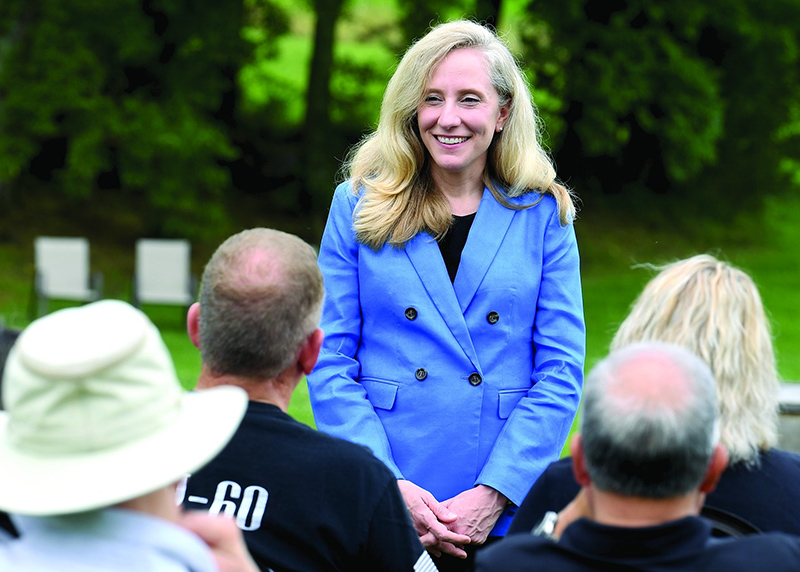Social conservatives proposing “compromise” to weaken Equality Act’s protections
Civil rights groups are worried that any compromises would weaken protections for LGBTQ people

A coalition of religious and social conservatives has proposed a bill to establish federal protections for LGBTQ people, but with the proviso that some discrimination can still occur.
The bill would carve out exemptions for religiously-affiliated organizations and health care workers who have religious objections to performing certain medical procedures — effectively being able to deny care to LGBTQ people.
The proposal is being floated ahead of a planned vote in the U.S. House of Representatives on Friday on the Equality Act, a sweeping, landmark bill that would amend the Civil Rights Act of 1964 to prohibit discrimination against people based on their sexual orientation or gender identity.
While the bill is expected to stall in the Republican-led U.S. Senate, some conservatives believe that eventual passage of an LGBTQ rights bill is inevitable, and are therefore working with Senate Republicans to introduce a “compromise” bill that cements in place special religious exemptions, reports BuzzFeed News.
Supporters of the compromise proposal compare it to Utah’s 2015 nondiscrimination law, which established protections for LGBTQ people — except in public accommodations — but also protected individuals who are against LGBTQ equality by ensuring they can’t be fired or disciplined for publicly expressing their beliefs opposing homosexuality, transgenderism, or same-sex marriage.
That law received significant support from the Church of Jesus Christ of Latter-day Saints, which opposes the Equality Act in its current form.
Stanley Carlson-Thies, the founder of the Institutional Religious Freedom Alliance, which is one of the groups backing the concept of a legislative compromise, laid out various “win-win” scenarios that could happen if the religious exemptions are adopted in an essay published on the IRFA’s website in April.
Carlson-Thies proposes prohibiting discrimination in public accommodations, such as restaurants, but would carve out an exemption for “holy spaces” that rent out facilities to the public so that they are not required to rent the space for use in a same-sex wedding ceremony.
He also proposes protections for transgender individuals who seek out routine medical care, but would also carve out protections for health professionals who don’t want to perform procedures related to a gender transition, for example.
Tim Schultz, the president of 1st Amendment Partnership, which is leading a coalition of evangelical groups in pushing for the compromise legislation, says the details of the Senate compromise bill are still being written — and he won’t say which senators are authoring the bill — but says he expects it to be filed sometime this year.
But other conservative groups, including the Heritage Foundation, oppose any compromise that would force social conservatives to accept or condone same-sex marriage, homosexuality, or transgenderism, which run counter to their religious beliefs.
Ryan T. Anderson, a senior research fellow at the Heritage Foundation, told BuzzFeed News that simply adding religious exemptions to an LGBTQ rights bill doesn’t mean it makes the underlying bill good policy.
“Compromise can be beneficial, provided it’s a good compromise,” Anderson said.
Civil rights groups are also skeptical of any compromise, fearing that far-reaching religious exemptions will weaken the bill to the point that nondiscrimination protections exist in name only.
They also argue that the Equality Act already protects the free exercise of religion, and is more in keeping with the intention of laws like the federal Religious Freedom Restoration Act.
“LGBTQ people deserve full federal equality, nothing more and nothing less,” David Stacy, the government affairs director for the Human Rights Campaign, said in a statement. “Substandard protections for LGBTQ people are not only discriminatory, they are dangerous. Firing a gay worker or refusing medically necessary health care to a transgender person is not religious freedom, it’s discrimination.
“The Constitution protects every American’s religious freedom,” Stacy added. “Religious freedom has always been and should always be a shield to protect religious practice, not a sword to harm others, and the Equality Act upholds that historic and fundamental principle.”
The LGBTQ advocacy organization GLAAD was more blunt in its assessment.
“Let us be crystal clear. We will NEVER compromise away the protections of every LGBTQ person from discrimination in order to satisfy those who wish to use religion as a weapon for discrimination,” the organization tweeted.
Let us be crystal clear. We will NEVER compromise away the protections of every LGBTQ person from discrimination in order to satisfy those who wish to use religion as a weapon for discrimination. https://t.co/UaBeKsowA0
— GLAAD (@glaad) May 16, 2019
Support Metro Weekly’s Journalism
These are challenging times for news organizations. And yet it’s crucial we stay active and provide vital resources and information to both our local readers and the world. So won’t you please take a moment and consider supporting Metro Weekly with a membership? For as little as $5 a month, you can help ensure Metro Weekly magazine and MetroWeekly.com remain free, viable resources as we provide the best, most diverse, culturally-resonant LGBTQ coverage in both the D.C. region and around the world. Memberships come with exclusive perks and discounts, your own personal digital delivery of each week’s magazine (and an archive), access to our Member's Lounge when it launches this fall, and exclusive members-only items like Metro Weekly Membership Mugs and Tote Bags! Check out all our membership levels here and please join us today!
























You must be logged in to post a comment.